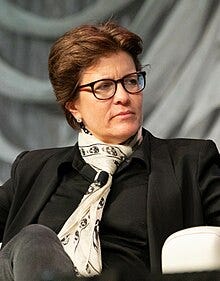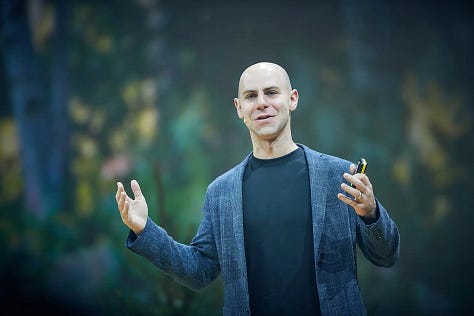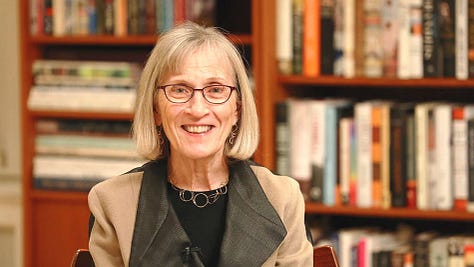Introducing The Career Strategy Series
Strategies and stories to help you realise your best career.
We spend a majority of our lives working, but a majority of us are not getting the most out of our careers & don’t know what to do about it 🤔
Welcome to Fuzzy’s Career Strategy Series, where we share research-backed strategies & stories to help you realise your best career 👇
Part 1: 👋 Introducing the Career Strategy Series
Part 2: 🪜 Ladder Climbing as a Strategy
Part 3: 👩🎓 Controlled Supply as a Strategy
Part 5: 🔍 Niche-ing as a Strategy
Part 6: 🧱 Skill-stacking as a Strategy
Part 7: 👷 Be A Generalist as a Strategy
Part 8: 📊 The Portfolio Career as a Strategy
Part 9: 📣 Building a Platform as a Strategy
Part 10: 🌊 Wave-surfing as a Strategy
Part 11: 🏗️ Adding Leverage as a Strategy
Part 12: 🌏 Proximity as a Strategy
Part 13: ⏱️ Sequencing as a Strategy
Part 14: 🧪 Optimising for Discovery as a Strategy
Part 15: ⚡ Do What Gives You Energy as a Strategy
Part 16: 💹 Arbitrage as a Strategy
If you’ve ever felt:
You’re stuck in a career rut not advancing,
You want to change careers but don’t know what to,
You know your dream job but not how to get there,
You want a different work-life balance,
You’re not learning and growing at work,
Or you just want a system to help you realise your best career…
Then trust us, you are not alone.
In fact, since we launched Fuzzy a year ago, ‘career navigation’ has been our most-requested course. Here’s a small sample of what we heard 💬
Business Development Executive: “I am feeling the constant need to change roles as have never specialised in one thing and lost at what to do”
Communications Manager for a Government Department: “Trying to decide on next steps & how I can do my best work, I am not doing it now :)”
Senior Management Consultant: “I've reached a point in my job where I am confident in delivering good work, but I'm not interested in this area long term, and keen to build skills that will keep me relevant”
Operations Manager: “Teach me tools, tips & techniques in career pivots - how to think about them, how to navigate them, how to put your best foot forward (and confidently!), how to discover your potential”Senior Marketing Executive: “I'm looking to make a career switch but I'm not sure what industry to go into and what skills I have to switch with.”
Venture Capitalist: “[my role] in a VC firm is a narrow role, I'd like to explore where the skills transfer as a future-proofing exercise.”
Senior Corporate Counsel at a Major Consumer Brand: “I’d like to transition to more purposeful career”
Re-Entering the Workforce: “I'm looking to re-enter the workforce after spending 4+ years running my own business and studying for an MBA. I have a lot of skills but I'm finding it hard to know which jobs to apply for and at what level.”
Looking For Work: “I have had many jobs, and find interesting things but always opportunistically, and need to be able to understand what will suit me long term to craft decisions and directions.”
VP of Product: “Interested in hearing more about this in particular as I'm planning a shift in my career (from full time product leader position to more fractional engagements e.g. consulting, coaching, writing, advising)”
The world has over a billion knowledge workers - and the data says most of them will experience career navigation challenges like these at some point 🤯
🤷🏽 Why isn’t the classic career advice working?
A lot of career advice is tactical, not strategic.
There’s an infinite number of articles on how to ace the interview, write a resume, refine your personal brand or run a project.
These can help you refine your low-level tactics - getting from A to B a bit more efficiently - but they won’t help you decide on high-level dilemmas like whether you want to go from A to B, C or D.
And they don’t answer the questions that keep us up at night - like where to make our big, hard-to-reverse investments of time, energy and money.A lot of career advice is anecdotal.
Read any profile of a famous figure, and you’ll get the impression that there’s one ‘recipe for success’ which they alone perfected.
But these narratives are often from a different time, based on a single person who might have different strengths & preferences to you, and try to shape a messy reality into a neat package with hindsight.
They’re just one data point, not a complete answer.Careers are actually an extremely modern phenomenon - much of the knowledge base on having fulfilling careers is still to be created.
Cue: an extremely simplified history of labour markets.
For most of human history, we had no choice about our place in the social order (born a peasant, die a peasant)…
And then a lucky few got to become tradesmen and apprentices in a small number of available trades…
And then with the rise of mass public education systems in the early 20th century, a wider group of (still mostly white dudes) could train in a chosen profession to join companies & climb the ladder until retirement.
But it’s really only been in the last few decades that a diverse group of people have existed in a labour markets which are mobile enough to think about evolving and changing their careers.
And so while ‘the workforce’ is studied in many academic disciplines, from industrial psychology to labour economics & education, there is a big gap around topics like the optimal career strategy for individuals.
Especially compared to the quality of answers we have in fields like medicine - which can have an equally huge impact on our wellbeing - we’re still playing catchup in studying careers.
It’s no wonder people get stuck on big career questions - we don’t start out with the tools we need to figure them out.
🚏 So how do you figure out the right career strategy for you?
I struggled with this for a long time.
My academic training was as a social scientist, which means I used real-world data to develop models that help explain everything from the politics of debt and gun control to predicting leadership spills in Parliament.
So after years of feeling overwhelmed whenever I thought about my career dilemmas, I did what I know best: build a data set and looked for patterns 🤓
I studied the careers of dozens of people I found inspiring & impactful, reading everything I could find about their characteristics, histories, time allocation, mistakes, advice and more - then turning into a huge spreadsheet.
A small selection of my data points👇









And I found something surprising: a series of career strategies came up over and over again - around 10-15, depending on how you count them.
These strategies all had different upside and downside risks.
Some are great fits for certain fields and not so good for others.
Many people would layer strategies together, or deploy different ones at different points of their career.
But I found it incredibly useful to have a framework I could use to think through my career decisions and stop feeling paralysed by them.
And when we broke down 10 of the strategies at Blackbird’s Sunrise Festival, paired with stories of cool individuals whose careers embodied each one, we discovered that other people appreciated it too*👇
*while encouraging us to cram less content into a 30 minute talk, very fair 🤣
🎉 So we want to share our learnings with you.
We’ve seen so many data points nudging us towards this problem - and we’ve now had so many people reach out asking us for a copy of the presentation that we made the call to share it!
New here? Explore the rest of the series 👇
Part 1: 👋 Introducing the Career Strategy Series
Part 2: 🪜 Ladder Climbing as a Strategy
Part 3: 👩🎓 Controlled Supply as a Strategy
Part 5: 🔍 Niche-ing as a Strategy
Part 6: 🧱 Skill-stacking as a Strategy
Part 7: 👷 Be A Generalist as a Strategy
Part 8: 📊 The Portfolio Career as a Strategy
Part 9: 📣 Building a Platform as a Strategy
Part 10: 🌊 Wave-surfing as a Strategy
Part 11: 🏗️ Adding Leverage as a Strategy
Part 12: 🌏 Proximity as a Strategy
Part 13: ⏱️ Sequencing as a Strategy
Part 14: 🧪 Optimising for Discovery as a Strategy
Part 15: ⚡ Do What Gives You Energy as a Strategy
We’re excited to learn more about your career challenges too, so feel free to get in touch and tell us more about what’s on your mind.
And if you’re finding the series useful, we recommend sharing it with others!







Can’t wait for this series! Super intrigued by the framework as I’m trying to get new perspectives on how to develop my career
Love the data approach —can’t wait to dig into it!